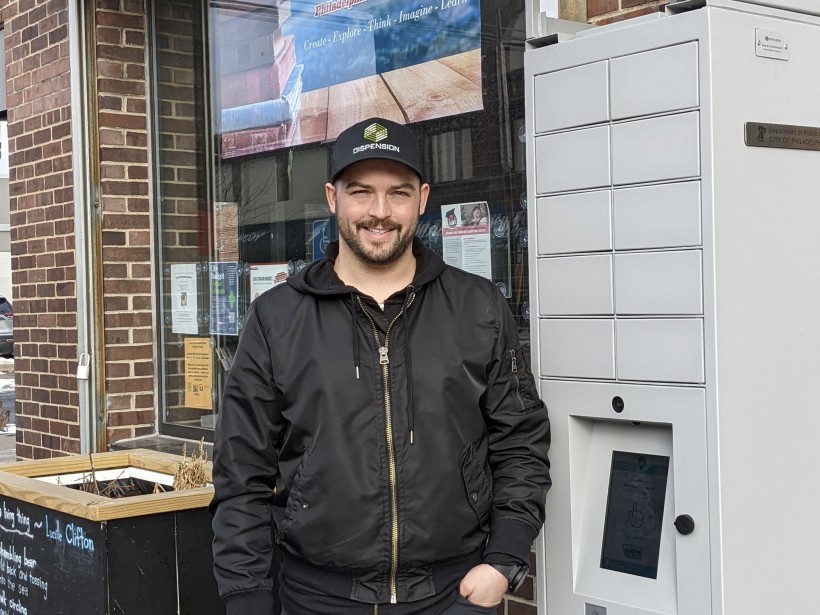Dartmouth-based Dispension Industries has built a machine that seems to be plucked straight from the realm of science fiction. But its real-world application has the potential to address a crisis that claimed the lives of 4,000 Canadians in 2017 alone.
The company has created a sophisticated “vending machine” that is designed to dispense controlled substances using a handprint scanning sensor. The idea is to use this technology to address the opioid crisis in Western Canada and the United States.
“We don’t like to use the word, ‘vending machine’,” said CEO Corey Yantha in an interview. “We’re supplying a public health and safety tool that’s really a platform for secure distribution of regulated products, while using biometrics to access what’s in the machine.”
Biometrics refers to taking measurements using physical or behavioural characteristics. Your fingerprint, for example, is a biometric.
To use Dispension’s machines, users register themselves by scanning their handprint with an infrared sensor. They set up an account with their name, age and payment information among other required fields. Then they are able to access controlled substances, like cannabis or opioids.
“It uses the highest accuracy biometrics on the market,” said Yantha. “It uses the veins inside the palm of your hand. That’s the most secure biometric because it can’t be manipulated, it’s internal. You don't leave your palm vein prints around like you do your fingerprints.”
Fund Backed by Gates, Bezos, Bloomberg Invest in CarbonCure
Yantha and his team have designed three prototypes of the machines, and in October they will send them to B.C for their first pilot project. Dispension has partnered with the Centre for Disease Control and Health Canada to test these machines in the downtown East Side of Vancouver. Last month, Yantha and Dispension were the co-winners of the $15,000 first prize in the Pitch 201 competition at Invest Atlantic.
And when the machines are installed, it’s heavily secured, “with all the alarms, bells and whistles,” said Yantha.
Canada’s laws on the distribution of controlled substances determine that the government is Dispension’s primary customer. And given that the legalization of recreational cannabis is three weeks away, it’s possible that Atlantic Canadians will be able to try out this tech in the near future.
Yantha said in regards to cannabis dispension, the company can solve simple issues like eliminating long lines in stores and more complex ones like combating the negative stigma surrounding cannabis use.
The company has been primarily self and privately funded since its start in 2017, and it's planning on inking new agreements with the federal and provincial governments in the coming months.
Dispension’s technology appeals to government bodies because of its capacity to quickly alleviate pressures on health professionals who are in the thick of the opioid epidemic.
Early this month, the federal government and the province of British Columbia announced their commitment to invest more than $71.7 million in innovative solutions for the rising number of people with substance use disorders.
Said Yantha: “For us, the red tape is being cut quite speedily because this is an emergency.”










